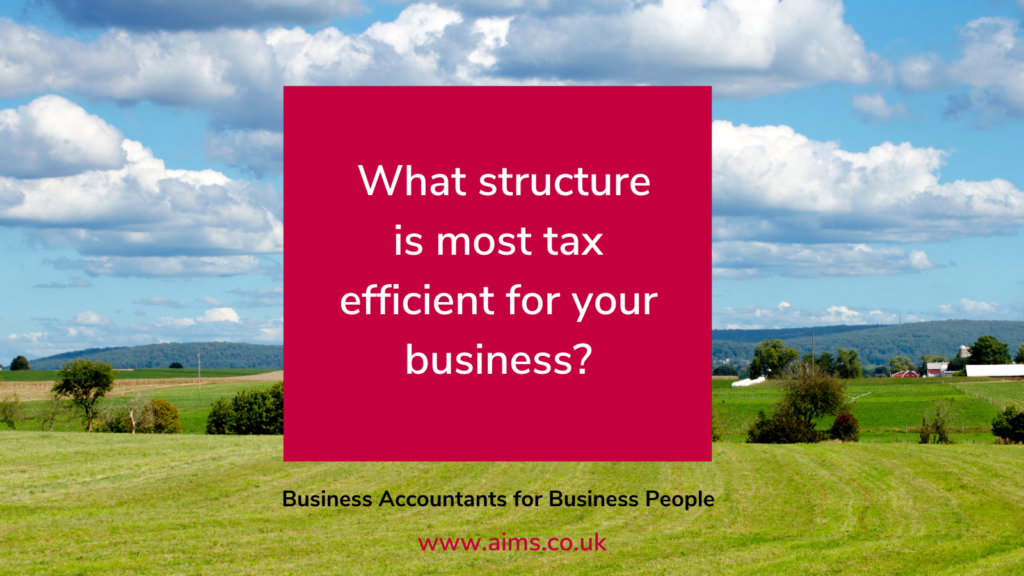
In April 2023, the rate of corporation tax in the UK increased to 25% for companies with profits over £250,000. The rate remains 19% for businesses with taxable profits of less than £50,000 and for everyone else, marginal tax relief will be applied, reducing the main corporation rate. One question we are often asked is ‘what structure is most tax efficient for my business?’
There are a number of tax efficient strategies for business owners to include, and we’ll be looking at each of these over the next few weeks.
Using the correct structure can have significant impact on your tax liabilities. The four main options are sole trader, partnership and limited company or limited liability partnership. In the UK, the majority of start ups opt for sole trader as the simplest way of starting a business, then they review the structure as they grow.
This is the simplest and easiest form of business to register. Self-employed sole traders work for themselves and must register this business with HMRC. They are therefore entitled to keep all of the profits as income but will be liable to pay tax and national insurance by filling out a Self Assessment Tax Return. There is no maximum amount they can earn, but it can become less tax efficient in the higher tax brackets. They will be responsible for all liabilities, and this includes all personal assets as well as those jointly-owned with another person.
Used when two or more people set up a business, and they agree to share profits or losses, as well as the responsibilities that go along with business ownership. In this arrangement, each partner is also liable for the consequences of the actions of the other partner (s), including misconduct or negligence. When starting a partnership, there’s an agreement about how the profits are shared and each partner pays taxes on their share.
A limited company is a privately managed business, owned by its shareholders and run by its directors. The company is a separate legal entity with its own legal rights and obligations. This means the company is responsible for everything it does and its finances are separate to the personal affairs of its owner(s). Any profits generated are retained by the company, after it pays Corporation Tax and dividends are paid to shareholders.
In this case, the liability is limited to the amount of money invested in the business by each partner. There will be a LLP agreement in place which sets up how responsibilities and profits are shared, and each partners submits a self-assessment tax return annually, and pays income tax on their share of profits.
To decide which structure is most efficient for your company, please talk to your AIMS accountant. They are also business owners and will be able to help you with your options.
Did you miss our first tip? You can read that here: https://www.aims.co.uk/tax-efficient-strategies-for-business-owners/